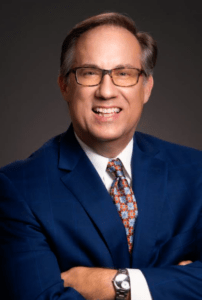I recently had breakfast with a colleague who finds himself wondering if he has one more move left in him. At the same time, he wonders whether he is now at an age when churches will simply pass over him in favor of a younger candidate.
He is praying and discerning what is next for his ministry and life. We had a wonderful conversation and at the very end I asked him if he had ever heard of Carlye Marney’s famous sermon, “In the Meantime.”
If you are not familiar with Marney, he was considered one of the great progressive preachers in the United States in the mid-20th century. He was pastor at First Baptist Church of Austin, Texas, and Myers Park Baptist Church in Charlotte, N.C.
“In the Meantime,” written in 1958, was the most requested sermon Marney ever preached, according to his biographer, John J. Carey. The text for the sermon is Jeremiah 29:4-13, where Jeremiah is speaking to the Jewish exiles who have been carried into Babylon.
Marney begins: “Most of life is lived in the meantime. … All ages are restless ages to the people who live in them. All times are critical to people who have problems. All roads are weary roads when you have too far to walk. And people do not like to wait.”
“All ages are restless ages to the people who live in them.”
I’ll be honest. The first time I read this, I felt like Marney was speaking directly to me. Many times I have lived life with impatience, thinking: If I can just make it through this. If I can just get beyond this Sunday, this project, this tour, this year. If I can just get beyond this period of time.
Marney, although an intellectual giant in his day, also could speak a pastoral word.
He said: “How can I live when my heart is somewhere else? How can I make it when my dreams have no prospect of coming true? How can I grow in this captivity of mine? How can I endure the silence when I long for … the singing voices?”
These are the questions of my friend and so many other colleagues who find themselves in a place or a time when the work we have loved has lost its luster, when the life we once dreamed of having seems to be slipping away.
Does Marney offer a solution? Yes, of a sort. And it’s not an easy one.
Quoting Jeremiah: “Seek the peace of the city whither I have caused you to be captive,” Marney’s prescription is to invest right where you are, to work and work hard to build up the place where you live. Marney urges us to dig deep, put down roots, take the long view. (Marney, of course, is speaking to a different culture and time than the one where we find ourselves. But remember, Marney was speaking hard truths in a deep South city during the tumultuous time of the 1960s and the Civil Rights Movement)
This advice to invest deeply assumes where you are is not harming you, body and soul. This assumes where you are could be a place where you can flourish.
I believe God wants us to flourish as our original parents were to have flourished in the Garden. We are God’s beloved. But let us acknowledge there are some circumstances that cannot be wished away nor managed with better strategic planning. Some seasons of life are very difficult. We only survive (if at all) surrounded by fellow travelers, kindred spirits. And we may only flourish again by stepping away and seeking a new city, a new task, a new life.
May the Spirit who brooded over the chaos of creation, show us a better way to live, to love, and to do the work we are called to do.
Doug Haney lives in Rock Hill, S.C., and leads a national network of church musicians called Polyphony. He served churches in Texas, North Carolina and Georgia as minister of music.
Related articles:
We are all interims eventually | Opinion by Doug Haney
‘None shall pass’ | Opinion by Steve Cothran



